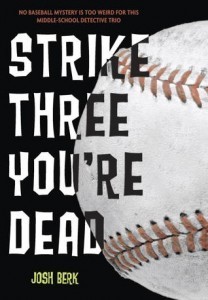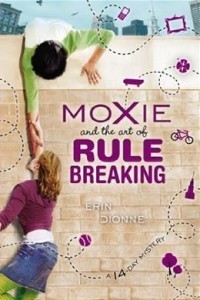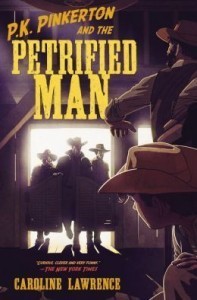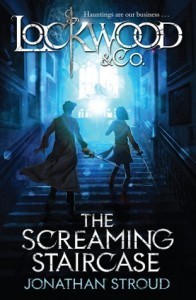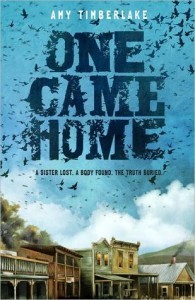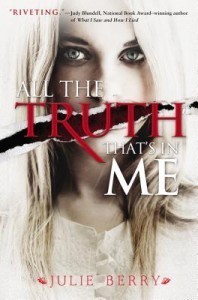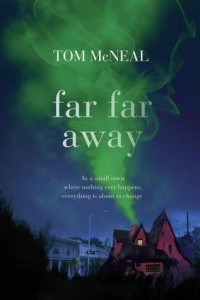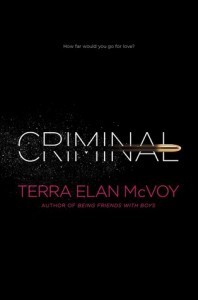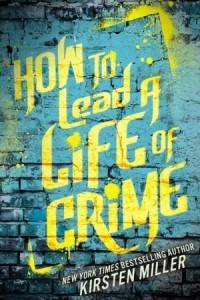Lea Wait's Blog, page 323
April 23, 2014
Edgar, Edgar, Who Gets an Edgar and BOTD
The first time I made Edgar predictions for the young adult and juvenile categories, I hit them both. Last year, I missed them both. How will I do this year? You won’t have to wait long. The winners will be announced next week. I think getting the Juvenile winner will be easier this year. Two books are pretty much neck and neck in my estimation. In the young adult category, the competition is much tighter. The folks who made this years final selections picked five dandy books. Herewith are brief descriptions of each, the covers and my predictions.
In the Juvenile category, we have:
Strike Three, You’re Dead by Josh Berk (Random House Children’s Books – Alfred A. Knopf BFYR) A good read for teen sports enthusiasts, but quite honestly, I wasn’t able to stick with this one.
Moxie and the Art of Rule Breaking by Erin Dionne (Penguin Young Readers Group – Dial) Here’s the full review I did in February for the Central Maine Library blog.
The last thing Moxie Fleece expects when she hurries to answer the front door is someone who is about to turn her life upside down, but that’s exactly what happens. The evil red head sneering at her leaves a sinister message: “Tell your mommy or grammy or whoever that Sully Cupcakes is looking for him.” Moxie soon discovers that the ‘him’ is her grandfather who is living in a nursing home and sliding ever deeper into Alzheimer’s Disease.
Thus begins Moxie’s unwilling quest to determine who Sully and the evil red head are and what it is they think her grandfather has hidden. Moxie knows he worked for the Boston mob as a semi-legitimate employee, mostly doing carpentry and maintenance work on buildings they owned. Nobody in the family talks about that part of his life, but Moxie knows it was a big part of why her father booked it when she was very young.
It takes her a while to put 2 and 2 together, but she realizes it must have been the art from the Isabella Gardner Museum heist that Sully wants back. Problem is, catching Gramps on a lucid day isn’t easy and when she does, he’s still cagy about his involvement. Fortunately, her best friend Ollie, a geeky geocaching fanatic is willing to help.
The way the two are able to figure out where the loot is hidden and how they retrieve it is done in a way that readers will feel like they’re part of the gang. One really neat hook is Ollie’s geocaching hero GI Goh. This has been nominated for an Edgar Award and after reading it, I can see why. It mixes suspense, friendship, the way kids feel when a divorced parent is in a serious relationship with someone they don’t quite like, the pain of watching a grandparent slide into complete memory loss and a bit of Boston history extremely well.
Teens and tweens who like a challenging mystery, a bit of New England history and plenty of well-crafted action will like this book.
P.K. Pinkerton and the Petrified Man by Caroline Lawrence (Penguin Young Readers Group – Putnam Juvenile) Second in a middle grade series with a 12 year old protagonist who has autistic tendencies in the 1860s American west, this one can confuse librarians and teachers a bit in terms of it fitting in the juvenile slot. There are elements like a brothel and ‘soiled doves’ that may be deal breakers for some of them. Counterpointing these is the way P.K. Pinkerton thinks and works. Young readers who like tight plotting will really enjoy how he notices clues, documents them carefully and solves crimes. There’s decent humor as well and that’s a bonus. The author works very hard to keep the social and cultural aspects of the story true to the times and readers who don’t get that aspect may feel the story has racist or bigoted overtones. That would do the book and the author a huge disservice. I haven’t read the first book in the series, but I think it might help readers enjoy this one more.
Lockwood & Co.: The Screaming Staircase by Jonathan Stroud (Disney Publishing Worldwide – Disney-Hyperion). Loads of younger readers devoured Stroud’s Bartimaeus trilogy, wherein, he set a high standard for dark humor. He hasn’t lost a step in this book. Imagine Ghost Busters with teen angst and far more dangerous creatures that must be destroyed. The alternative is they’ll destroy you and the protagonists have no real say in whether they’ll play or not. Bumbling heroes who are really anything but, a world gone psycho that’s waiting for kids to step up and save it because the adults are too freaked out to do much aside from whimper. This one is immersive, crazy and fun to read.
One Came Home by Amy Timberlake (Random House Children’s Books – Alfred A. Knopf BFYR). Thirteen-year-old Georgie Burkhardt can shoot better than anyone in Placid, Wisconsin. She can handle accounts and serve customers in her family’s general store. What she can’t do is accept that the unrecognizable body wearing her older sister’s blue-green gown is Agatha. Thus begins what’s a sometimes sad, occasionally scary and thoroughly engrossing story of a girl on the cusp of growing up who is riddled with guilt because she thinks her rash decision to tell on her older sister was the reason she ran off with some pigeon chasers, people following the monster flocks of passenger pigeons so they can kill and harvest them for meat and plumage. She refuses to believe the body parts retrieved by the local sheriff can be her beloved sister, even though the dress fragments match the one her sister was wearing when she vanished.
There are several things that make this an engrossing read. Georgie’s struggle to be a normal girl while striking out with her sister’s sort of boyfriend Billy, her having to deal with rotten pigeons and pigeon poop, her getting stuck with Billy’s mule, her coolness when she has to shoot at bad guys and mostly, her out and out pluckiness. It’s easy to see why this has already become a Newberry Honor Book.
So, who wins? I was leaning strongly toward Moxie until I read One Came Home. They’re very close in my mind, but I’m going with the latter for three reasons. First, it has momentum thanks to the Newberry nod, It has a more complex protagonist who can elicit pretty strong responses from readers and it has a tinge of sadness that makes the ending that much more satisfying. That said, if Moxie wins, I’ll be just as happy.
The five young adult nominees are all gritty as hell and that made then really good reads for me.
All the Truth That’s In Me by Julie Berry (Penguin Young Readers Group – Viking Juvenile) Here’s what I said when I reviewed this for the library blog.
Judith lives in an earlier time. Four years ago, she disappeared around the same time as her best friend. The other girl’s naked body was found on the riverbank, Judith came home two years later, half her tongue cut off to prevent her from talking. In the two years since, she’s lived with her mother who is locked in icy grief over the death of her husband, and her younger brother Darrel. Her mother secretly blames Judith for her loss. Unable to speak, and shunned by nearly everyone in the village, Her silent love for Lucas, her childhood friend, keeps her going.
It was Lucas’ father, gone mad after his wife ran off with another man, who abducted Judith and maimed her. Everyone believes he died when his house went up in flames. The villagers have been on alert for years, waiting for homesteaders to return and take everything they’ve built and raised. When they do, it’s Lucas who gathers them to defend the townspeople. Judith, realizing they’re outnumbered, returns to the hidden house where she was held captive and makes a pact with her very insane kidnapper who’s still alive, but her act saves the day. Unfortunately, it sets in motion further pain and suffering for most of the main characters in the story, particularly her and Lucas. When Maria, the girl who was betrothed to Lucas until the boy she truly loved was injured, befriends her, Judith starts coming out of her shell and begins, slowly and ever so painfully, to talk again.
What happens between that point and the end of the story is both brutal and beautiful as well as making for riveting reading. I had a great deal of difficulty putting this down very late at night and resumed reading it at 5:30 the next morning. Part love story, part Joan of Arc allegory, part mystery, I can see why it was nominated for a young adult Edgar Award. Even with pain, killing during the fighting and an amputation, it’s still a worthy read for both teens and mature tweens who like an involved and excellently crafted story.
Far Far Away by Tom McNeal (Random House Children’s Books – Alfred A. Knopf BFYR). Jeremy Johnson Johnson hears voices. Or, specifically, one voice: the ghost of Jacob Grimm, one half of The Brothers Grimm. Jacob watches over Jeremy, protecting him from an unknown dark evil whispered about in the space between this world and the next.
But Jacob can’t protect Jeremy from everything. When coltish, copper-haired Ginger Boultinghouse takes a bite of a cake so delicious it’s rumored to be bewitched, she falls in love with the first person she sees: Jeremy. In any other place, this would be a turn for the better for Jeremy, but not in Never Better, where the Finder of Occasions—whose identity and evil intentions nobody knows—is watching and waiting, waiting and watching. . . And as anyone familiar with the Brothers Grimm know, not all fairy tales have happy endings. This is an excellent book, but is so involved, particularly at the beginning, that many readers won’t stick with it long enough to enjoy a truly twisted, but extremely well-crafted trip into insanity.
Criminal by Terra Elan McVoy (Simon & Schuster – Simon Pulse). Nikki’s life is far from perfect, but at least she has Dee. Her friends tell her that Dee is no good, but Nikki can’t imagine herself without him. He’s hot, he’s dangerous, he has her initials tattooed over his heart, and she loves him more than anything. There’s nothing Nikki wouldn’t do for Dee. Absolutely nothing. So when Dee pulls Nikki into a crime – a crime that ends in murder – Nikki tells herself that it’s all for true love. Nothing can break them apart. Not the police. Not the arrest that lands Nikki in jail. Not even the investigators who want her to testify against him. But what if Dee had motives that Nikki knew nothing about?
Welcome to a book where the main character will probably annoy the hell out of you until she gets under your skin and you realize you’re mad at her because you care about her and are totally frustrated by her seeming stupidity when it comes to her abusive, slimeball boyfriend. This is the most psychological of the five, very dark, filled with anger and blindness (at least on Nikki’s part) and seemingly stuck in place for a fair portion of the book. When Nikki finally starts to get a clue, you’ll probably feel like screaming, “What took you so long?”
How to Lead a Life of Crime by Kirsten Miller (Penguin Young Readers Group – Razorbill). Imagine Blade Runner meeting Harry Potter and then getting locked up with characters from One Flew Over The Cuckoo’s Nest and you’d have the flavor of this one. Flick’s been living on the street and surviving by becoming an accomplished pickpocket. He’s pretty much numbed out after years of being beaten by his ultra-successful father, who looks perfect to the rest of the world, but is a monster at home after he’s consumed a certain amount of scotch. After Flick left, Dad turned on his younger brother and hit him one too many times, killing him. It was covered up, but Flick knows it was murder and would do anything to get a chance for revenge. In the mean time, he’s fallen in love with an exotic street girl named Joi who’s taken it upon herself to rescue as many homeless kids as possible. Even though Flick loves her, he forces himself to leave because his need for revenge is stronger than his feelings for her.
When he’s approached by Lucien Mandel who wants to recruit him for the ultra elite and secret Mandel Academy, Flick starts to blow him off, but Lucien makes him an offer he can’t refuse. If he agrees and makes it to graduation, He’ll get a file full of proof his father killed his brother.
The Academy will remind many of the training Katniss and her competitors went through in preparation for the Hunger Games, but it runs full semesters, there’s a top student known as a Dux and the lowest in each class, while supposedly are allowed to go home after they fail out, end up with a far grimmer fate. As Flick gets to know the other students and begins to realize how completely corrupt the whole process is, Lucien ups the ante and all of a sudden Flick is in direct competition for the top spot with the love of his life, Joi, but he can hard;y recognize the cold, hardened and ruthless girl who has no problem taking down and terrorizing even the most ruthless students.
How this all plays out is not only full-out screech, but replete with a bunch of twists that kept me up well into the wee hours so I could finish it.
Ketchup Clouds by Annabel Pitcher (Hachette Book Group – Little, Brown Books for Young Readers). Here’s my full review done in February for the library blog.
If the first paragraph of the opening letter doesn’t grab your attention, nothing will. “Ignore the blob of red in the top left corner. It’s jam, not blood, though I don’t think I need to tell you the difference. It wasn’t your wife’s jam the police found on your shoe. . . . I know what it’s like. Mine wasn’t a woman. Mine was a boy. And I killed him exactly three months ago.”
Thus begins Zoe’s confession in installments to a death row inmate in Texas who stabbed his wife to death after she had an affair with his brother. She writes to him while hiding in the out-building behind her home in England very late at night. Zoe’s filled with guilt and sadness over the death of Max, her sort of boyfriend and has to confess to someone. She’s decided that Mr. S. Harris, sentenced to die on May first for his crime, is as safe as it will get.
The story, all in letter form with narrative between the salutations and closings, tells her story, not just of the relationship that led up to that awful night, but the situation with her family and friends. At home, there’s real tension. Her parents are lawyers. Dad has lost his job, her mother stays home to care for Zoe and her two younger sisters. The youngest is deaf and there are unspoken issues about why that happened which ramp up the tension as the letters progress. In addition, there’s increasing friction when her grandfather, a minister, has a stroke and because of a fallout years ago, her parents fight over how to involve Zoe and her siblings in grandfather’s life now that he’s really ill. Add in the emotional rollercoaster Zoe finds herself on when she discovers that Aaron, the mysterious guy who banters with her and calls her Bird Girl, is Max’s brother and you have a story that sinks its claws into you with a vengeance.
The letter concept works extremely well, dribbling out details in a smooth, but stingy manner. By the time Zoe tells what happened the night Max died, Mr. S. Harris has been executed, so her confession is safe, but her life is a mess, full of grief, guilt and awareness that happily ever after left town on an earlier bus. Sad and beautiful are the two words that best describe this book and the longer I think about it, the stronger the sadness gets. It’s a YA Edgar nominee for good reason and is a book more mature young adult readers will really like.
As I noted at the beginning, I’m impressed with all five entries. I’ve gone back and forth several times, changing my mind. I’m tossing out Criminal and Far, Far Away, not because they aren’t terrific books, but because the other three stuck in my head a lot more. I’m going with Ketchup Clouds for some of the same reasons that made me choose what I did for my juvenile pick. It’s a book that made me feel a lot more than the others and has that essence of sadness when there aren’t any winners, only survivors.
On a completely unrelated note, I’m trying a new creative exercise every morning on my Facebook page. Each day I profile a new BOTD (Band of The Day). My aim is to make them almost sound real, be funny, create a believable background for them and suggest a couple of their current songs that readers might enjoy. It’s a fun challenge that has already attracted a following. Here’s the link. Hope you enjoy some of them.
April 22, 2014
MEET AUTHOR JUDITH ARNOLD
Susan Vaughan here (http://www.susanvaughan.com).

My guest today is multi-published author Judith Arnold, who lives with her family in nearby Massachusetts. Judith has sold more than 90 novels, with millions in print worldwide. She’s been a multiple finalist for the Romance Writers of America’s RITA award and the winner of RT Book Reviews Reviewer’s Choice award in four subgenres of romance. Judith has recently turned her considerable talents to writing mysteries for Belle Bridge Books. Interviewing Judith is a particular pleasure for me because I’ve known her for years and have read many of her books, including the first book in her new mystery series, Dead Ball. Her protagonist Lainie is another of Judith’s complex characters–funny and witty but with family problems. if that isn’t enough, a murder sets her up for major trouble. Couldn’t put the book down.
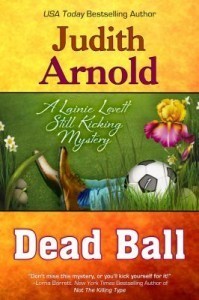
SUSAN: Judith, you have a funny story about your first book sale, something about your son? Will you share that?
JUDITH: I found out I was pregnant with my first child a week after I’d sold my first book. When I got word of the book sale, friends of mine hosted a party to celebrate. I suspected I might be pregnant, but I didn’t want to share this news before I had definite confirmation. At the party, the champagne flowed like Niagara Falls, everyone drinking toasts to me. But on the chance that I was pregnant, I didn’t want to consume any alcohol. So I’d fake a sip of champagne, smile, and search for a house plant to empty my glass into. Another toast, another fake sip, and I’d duck into the bathroom and drain my glass into the toilet. I think I choked down a few mouthfuls—and I’m relieved to say the baby survived just fine. As it happened, my son and my book were both October releases that year. The name of the book was Silent Beginnings. My husband and I nicknamed our son “Noisy Beginnings.”
SUSAN: After that memorable autumn, I expect you look forward to October every year. You’ve published in a wide variety of genres. From plays to category romance to single-title romance and more mainstream women’s fiction and now to mystery. What’s it been like wearing these several hats? How do you change the mindset from one to the other?
JUDITH: No matter what the genre or the medium, a story is a story. My stories are character-driven, so whether I’m writing a mystery, women’s fiction, lit-fic, or a romance, my voice is pretty much the same. Whether the story ends with lovers making a lifelong commitment to each other or with the heroine dodging bullets and figuring out who committed the crime, my readers will find what they enjoy about a Judith Arnold book: sympathetic characters, warm humor, and satisfying emotion.
SUSAN: I definitely find those three characteristics in your stories, along with your unique voice. How do you begin a new project? Do you research first, come up with characters first, outline, or just dive in and let the creative processes take over? Paper and pencil first or on the keyboard?
JUDITH: Usually, the characters come to me. They invade my mind and tell me their stories. I try to restrain these pesky characters until I can come up with some sort of structure in which they can live their stories. I place a lot of trust in my creative instincts. I don’t outline or map out stories before I start to write. I write on the keyboard. I can’t read my own handwriting—I have trouble reading my grocery lists! Before I got my first computer, I wrote directly on a typewriter. I can type faster than I can hand-write.
SUSAN: I’m with you on writing on the keyboard. Some people think a writer’s life is glamorous, but we know better. What’s something unglamorous you’ve done this week?
JUDITH: For the most part, the writer’s life is not at all glamorous. One of my less glamorous activities this past week was rolling my mother’s bingo winnings—mostly nickels, a few dimes and quarters—into paper tubes so I can deposit them in the bank. Yesterday my options were to roll the coins or write, and I was in procrastination mode.
SUSAN: Ah, yes, procrastination, but I prefer to think of it as letting the ideas percolate. What do you like most about writing and what do you like least?
JUDITH: The actual process of writing can be a real struggle, and I’m often convinced that what I’m writing is pure crap. But then I go back and read what I’ve written, and I discover that it’s actually pretty good. I love that. I also like fussing over the words themselves, listening to their rhythm, making sure they express what I’m trying to say in an accurate and moving way. What I like least are those times when the words won’t flow. There’s usually a reason for this. Maybe my characters are misbehaving. Maybe the story’s conflict isn’t strong enough. Maybe I’m just too tired to create. But when my writing gets stuck, I feel as if I’m trying to jog in quicksand. My legs pump frantically, but instead of moving forward, I sink.
SUSAN: Is Dead Ball your first mystery? (I’m thinking Cry Uncle comes close.) Would you consider it a cozy mystery or something else? Tell us a little about the book and your sleuth.
JUDITH: Dead Ball is my first real mystery. I’d never considered myself a mystery writer, but this was definitely an instance in which the heroine invaded my brain and demanded that I tell her story. Lainie Lovett is such a wonderful heroine, I’ve already written a second book for her, and a third is gestating. Dead Ball is probably closer to being a cozy mystery than anything else, because Lainie is an amateur sleuth. She’s a forty-something fourth-grade teacher who stumbles into a murder and then has to solve it to clear her own name. Dead Ball does have some sex and some foul language, elements not usually found in cozies. But they’re essential to the story, so I hope readers won’t mind.

I’m glad you mentioned Cry Uncle, because the ebook edition of that novel is on a limited-time sale right now for 99 cents. Cry Uncle is more of a romantic suspense than a mystery, but it’s also a marriage-of-convenience story, a comedy, and a sexy romance. (I guess I have trouble coloring inside the lines. )
SUSAN: Before we finish, is there anything else you’d like to share?
JUDITH: A gentle suggestion to readers: If you read a book and love it, please consider posting a review of the book on Amazon or one of the other book retail sites. It doesn’t have to be long or elaborate or analytical. A couple of sentences will do. The way the publishing industry currently functions, writers need those reviews to survive. So if you want your favorite authors to keep producing the books you love, help them out by posting a review. I know they’ll appreciate it.
****
Thank you, Judith for a terrific interview. I’m sure our readers will find your writing process and other insights fascinating. Our blog readers can find more information about Judith’s books at her website: http://www.juditharnold.com.
April 21, 2014
The Agatha Best Contemporary Novel Nominees
Hi. Barb here.
Yesterday, Leslie Budewitz, an Agatha-nominee for Best First Novel blogged about her novel and those of all of her fellow nominees. I thought is was such a great idea, I’m borrowing it today. It’s easy for me to comment on all the nominated books, because I love all my fellow nominees’ books and (with one exception, noted below) would have read all of them anyway.
The Agatha Awards honor the “traditional mystery.” That is to say, books best typified by the works of Agatha Christie as well as others. The are given in six categories: Best Contemporary. Best Historical, Best First, Best Short Story, Best Nonfiction and Best Children’s/Young Adult. The winners will be announced at the 2013 Agatha Awards banquet to be held at the Malice Domestic conference on Saturday, May 3, 2014.
And the Agatha nominees for Best Contemporary Novel published in 2013 are:
Through the Evil Days by Julia Spencer-Fleming
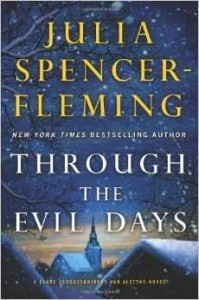 Many Maine Crime Writers blog readers (and readers everywhere) are familiar with Julia.
Many Maine Crime Writers blog readers (and readers everywhere) are familiar with Julia.
Here’s the blurb.
In Through the Evil Days, New York Times bestselling author Julia Spencer-Fleming raises the stakes for Russ and Clare, putting their new marriage, their unborn child, a missing teen, and their very own lives on the line.
Julia’s been on my “don’t ask any questions, just buy it in hardcover as soon as it comes out,” list for years. I loved this book, stayed up way too late to finish it and marveled at how Julia keeps this series so fresh after eight books.
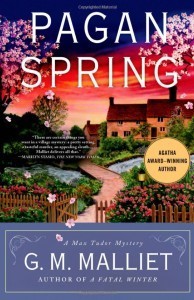 The one fellow nominee who’s books I previously hadn’t read was G.M. Malliet. I’m glad that’s changed, now and forever.
The one fellow nominee who’s books I previously hadn’t read was G.M. Malliet. I’m glad that’s changed, now and forever.
Here’s the blurb.
G. M. Malliet has charmed mystery lovers, cozy fans, and Agatha Christie devotees everywhere with Wicked Autumn and A Fatal Winter, the critically-acclaimed mysteries that introduced former spy turned cleric Max Tudor. Now, Max returns to the small English village of Nether Monkslip, where some new residents cause quite a stir.
You’d think with a setting like the English village of Nether Monkslip and a protagonist who is an Episcopal priest, these books would be as cozy as they come. (Julia’s protagonist is also an Episcopal priest. My friends have been joking about me sitting between the two of them on the Agatha nominees panel at Malice.) But give the priest a background at MI5, and a love interest whose spiritual leanings are decidedly not high church, and it all gets very interesting.
How the Light Gets In by Louise Penny
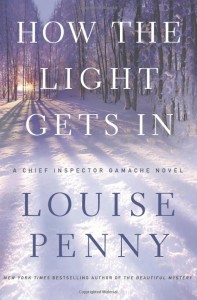 If you haven’t read every single book in Louise Penny’s magnificent series, go do it right now!
If you haven’t read every single book in Louise Penny’s magnificent series, go do it right now!
Here’s the blurb.
Christmas is approaching, and in Québec it’s a time of dazzling snowfalls, bright lights, and gatherings with friends in front of blazing hearths. Chief Inspector Armand Gamache discovers that a missing woman was once one of the most famous people not just in North America, but in the world, though she now goes unrecognized by virtually everyone.
Louise Penny’s book The Trick of the Light is one of my desert island reads and her series continues just a strong with this one. I am awed to even be on a list with her.
The Wrong Girl by Hank Phillippi Ryan
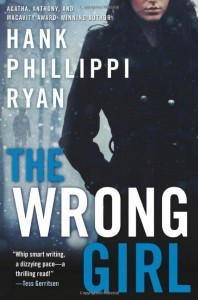 Hank Phillippi Ryan’s body of work was another I knew well before we ended up together on the Agatha nominee list. I’ve been a fan of both her series.
Hank Phillippi Ryan’s body of work was another I knew well before we ended up together on the Agatha nominee list. I’ve been a fan of both her series.
Here’s the blurb.
Does a respected adoption agency have a frightening secret? Tipped off by a determined ex-colleague on a desperate quest to find her birth mother, Boston newspaper reporter Jane Ryland begins to suspect that the agency is engaging in the ultimate betrayal—reuniting birth parents with the wrong children.
For my money The Wrong Girl is Hank’s best book yet. I was so engrossed, I just kept turning the pages. I completely recommend it.
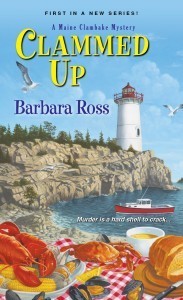 In case you just started reading this blog today, here is the blurb.
In case you just started reading this blog today, here is the blurb.
Summer has come to Busman’s Harbor, Maine, and tourists are lining up for a taste of authentic New England seafood, courtesy of the Snowden Family Clambake Company. But there’s something sinister on the boil this season. A killer has crashed a wedding party, adding mystery to the menu at the worst possible moment. . .
What can I say, except that I’m thrilled to be on this list with some of my writing heroes. Clammed Up is the only paperback original and the only first-in-series on the list. I’m still not sure how it happened, but I’m going to enjoy the whole ride.
And A Good Time Was Had By All
 Kate Flora here. It’s not my day to blog, but today’s scheduled blogger is lost in a sea of confusion. Not surprising. This weekend, many of your friendly neighborhood Maine Crime Writers were gathered at the Glickman Library in Portland for the inaugural Maine Crime Wave, the Maine crime writing community’s own day to get together and make each other’s head’s explode.
Kate Flora here. It’s not my day to blog, but today’s scheduled blogger is lost in a sea of confusion. Not surprising. This weekend, many of your friendly neighborhood Maine Crime Writers were gathered at the Glickman Library in Portland for the inaugural Maine Crime Wave, the Maine crime writing community’s own day to get together and make each other’s head’s explode.
Okay. I don’t mean that literally. Despite a closing panel that discussed crime scenes and buried bodies and ended with some details about who has jurisdiction in different parts of the state to fish a body out of the water, attendees departed with their own body parts intact. It’s just that the inside of their heads were bursting with information and ideas.
The Maine Crime Wave began when an idea that had been bouncing around for years solidified into a

Paul Doiron, Alice Adams, and a man named Jim
committee at another mystery conference, The New England Crime Bake. It got its name from MCW alum Paul Doiron. On what was very short notice, the committee–me, Paul, Brenda Buchanan, and Maine Writers and Publishers Alliance director Josh Bodwell–targeted April 19th, created a schedule, and organized panels and workshops and recruited presenters. Then the word went out, and we waited for Maine’s crime writers to sign up.
Ever give a dinner party where no one showed up on time? Well, it was like that. There was a flurry of excitement and then, well, uh–not much. Then MPBN, the Press Herald, the Bangor Daily News, and other newspapers began to pick up our theme: Why is it, if Maine is the safest state in the country, that it is so attractive to crime writers. As a setting? As a place to live? Why is there a perception of Maine as a dark, mysterious place?
Soon the committee was sending around this quote from Conan Doyle:
“Good heavens!” I cried. “Who would associate crime with these dear old homesteads?”
“They always fill me with a certain horror. It is my belief, Watson, founded upon my experience, that the lowest and vilest alleys in London do not present a more dreadful record of sin than does the smiling and beautiful countryside.”
“You horrify me!”
“But the reason is very obvious. The pressure of public opinion can do in the town what the law cannot accomplish. There is no lane so vile that the scream of a tortured child, or the thud of a drunkard’s blow, does not beget sympathy and indignation among the neighbours, and then the whole machinery of justice is ever so close that a word of complaint can set it going, and there is but a step between the crime and the dock. But look at these lonely houses, each in its own fields, filled for the most part with poor ignorant folk who know little of the law. Think of the deeds of hellish cruelty, the hidden wickedness which may go on, year in, year out, in such places, and none the wiser.”
The Adventures of Sherlock Holmes (1892)
Sherlock Holmes in “The Copper Beeches” (Doubleday p. 323)

Gerry Boyle and Jim Hayman in the bar
Saturday’s lineup included: Gerry Boyle, Julia Spencer-Fleming, Chris Holm, Kathy Lynn Emerson/Kaitlyn Dunnett, and Paul Doiron. There were workshops on plot, character, setting, and the challenge of creating suspense in fiction. The keynote was by the always charming Tess Gerritsen. Editors including Tiffany Schofield from Five Star/Cengage, Genevieve Morgan from Islandport Press, and Jane Karker from Maine Authors Publishing joined Julie Hennrikus, President of Sisters in Crime New England, to discuss the Business of Writing.
The day closed with a retired Portland Detective Sergeant, Bruce Coffin, and Roger Guay, a retired Game Warden who is now a private investigator, giving an inside look at how crimes are investigated and crime scenes are handled in Maine.
Maine Crime Writers regulars Lea Wait, Susan Vaughan, and John Clark were there.
You know you’ve done a good job when no one wants to leave.
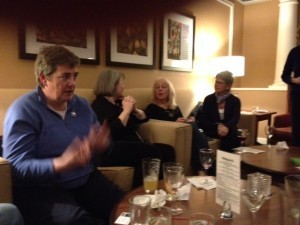
Committee member Brenda Buchanan in the bar
Mystery writers are a fun and generous lot, and it’s a great community. It was good that we had a chance to get together. Friday night at the bar and Saturday at the conference.
But where were you?
So if you’re feeling left out, mark your calendars for next April, and look for the announcement.
April 19, 2014
Weekend Update: April 19-20, 2014
This is our special Maine Crime Wave edition. If technology cooperates, we’ll be adding to this post from the venue in Portland. If it doesn’t, look for more follo w-up in future posts.
w-up in future posts.
Next week at Maine Crime Writers there will be posts by James Hayman (Monday), Barbara Ross (Tuesday), Susan Vaughan (Wednesday), John Clark (Thursday), and Kate Flora (Friday).
In the news department, here’s what’s happening with some of us who blog regularly at Maine Crime Writers:
Lea Wait: On Tuesday, April 22, (spring vacation week for Maine’s schools) I’ll be speaking about my latest book for young people, Uncertain Glory, at 3 p.m. in the Wiscasset Library, on High Street in Wiscasset. I’ll be bringing with me some primary sources … and some 19th century kitchen utensils and memories of Wiscasset. Readers of all ages invited, and copies of my books will be available for purchase and signing.
An invitation to readers of this blog: Do you have news relating to Maine, Crime, or Writing? We’d love to hear from you. Just comment below to share.
And a reminder: If your library, school, or organization is looking for a speaker, we are often available to talk about the writing process, research, where we get our ideas, and other mysteries of the business. Contact Kate Flora: kateflora@gmail.com
April 17, 2014
My Library Story
Hi. Barb here.

Caroline Furness Jayne
Over the years, many of us Maine Crime Writers have told the story of the library that most influenced our lives. I was supposed to tell mine last year, but National Library Week coincided with Boston Marathon week, and I found I just couldn’t.
So I’m trying here again.
I grew up in Montclair, New Jersey, but in the summer between fourth and fifth grade, my family moved to Wallingford, Pennsylvania, a southwestern suburb of Philadelphia. We moved into a development called Heatherwold, a small community of sidewalkless, winding roads and houses of brick and stone built just before the second World War.
 For me, the most amazing thing about Heatherwold was that the community library, The Helen Kate Furness, was right in our development. I was, at ten, at last allowed to walk to the library by myself, any time I wanted. One of my most vivid sense memories is of walking there one evening in the fall. The sky was dark, the air crisp, and as I walked, I drank in the freedom that you feel when you are a child, on your own, in charge of where you’re going for the first time. An enormous flock of Canadian geese flew overhead, so noisy I can hear them still.
For me, the most amazing thing about Heatherwold was that the community library, The Helen Kate Furness, was right in our development. I was, at ten, at last allowed to walk to the library by myself, any time I wanted. One of my most vivid sense memories is of walking there one evening in the fall. The sky was dark, the air crisp, and as I walked, I drank in the freedom that you feel when you are a child, on your own, in charge of where you’re going for the first time. An enormous flock of Canadian geese flew overhead, so noisy I can hear them still.
At the Helen Kate Furness, I read everything I could in the children’s library, books that would now be labeled young adult, and then the librarian gently suggested that I go upstairs to the adult library. I did and never looked back, inhaling mysteries, historical fiction and classics in the adult collection.
 Heatherwold and the library were built on the land of Lindenshade, the country estate of Horace Howard Furness (1833-1912) whom Wikipedia describes as the “most important Shakespearean scholar of the 19th century.” The library is named for his wife and collaborator. His brother was the noted Victorian architect Frank Furness and Lindenshade is attributed to him.
Heatherwold and the library were built on the land of Lindenshade, the country estate of Horace Howard Furness (1833-1912) whom Wikipedia describes as the “most important Shakespearean scholar of the 19th century.” The library is named for his wife and collaborator. His brother was the noted Victorian architect Frank Furness and Lindenshade is attributed to him.
When I was a child, only two widely separated wings of Lindenshade still stood. One was the brick library built for H.H. Furness’s collection. In the early 1960s when I lived in Wallingford, the former library wing was a rental property where my friend Alison lived. When I look at this photo of Furness in his library, I wonder how that worked.

Horace Howard Furness in his library.
Everything you read about Lindenshade says it was demolished except for its library in 1940. But I am certain that when I lived in Wallingford in the early 1960s, the two-story wing you see in the foreground of the photo below still stood. And in it lived the descendents of H. H. Furness’s daughter Caroline Furness Jayne.
Jayne was an enthologist who in 1906 published the definitive work String Figures and How to Make Them: a study of cat’s cradle in many lands. It is still in print today, and just to bring us full cycle, in 2000 D.R. Meredith wrote a cozy mystery, By Hook or By Book, about a missing Jayne manuscript and a murder at a string figure conference.
The wing that still stood was at the end of a lane at the edge of a wood, and in it lived three beautiful little girls with long braids. And beyond their house, and its stables, in a wild wood, was the basement of Cornelia Furness Jayne’s old mansion, called Sub Rosa, the remains of a marble swimming pool and a bamboo forest. The woods were a magnet for children and we spent hours and hours playing there.

Sub Rosa
I cannot tell you how many times those woods, those ruins and those three little girls have appeared in my writing–short stories, novels, what have you. It is the place of my childhood imagination.
Today, Google maps shows me, H.H. Furness’s library has an addition, which makes it look like a comfortable home. The old wing where the Jayne girls lived has either been radically remodeled or torn down and rebuilt, the same for the stable. The woods are now called Furness Park. The Helen Kate Furness Library had a second addition in 1974 and goes on as the community library.
(Note: Many of the photos here and some of what I learned of the history is from the personal website of Richard Griscom.)
April 16, 2014
Support Your Local Library
In honor of National Library Week, here’s a post we did as a group way back when MCW was young. The sentiment still holds–writers love libraries. We love our local libraries, we love the libraries we visit, and we love the librarians who converse with us through the blog, on Facebook, at mystery conferences and at gatherings we’re attending. For many of us, libraries were the temples and/or refuges of our youth and helped us keep our noses buried in books.
(And note: one lucky commenter on one of this week’s blogs will win a bag of mysteries)
Kaitlyn Dunnett: I made the mistake of making the following suggestion: how about writers and
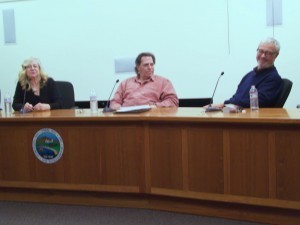
Lea Wait, Al Lamanda and Jim Hayman at the Kennebunkport Library.
libraries as a group topic? We could relate funny/good experiences, talk about some of the neat-looking buildings around the state, and maybe make a plug to “support your local library.” The immediate response to this from our resident guru (that would be Kate) was “Feel free to start that post with a story.” I immediately went blank. I can’t even count the number of Maine libraries I’ve visited, on my own or as part of a Sisters In Crime panel. There are lots of lovely memories. Unfortunately, I’m not always sure which memories go with which library. This is doubly embarrassing because Maine libraries often have unique features. Patrons have to walk across a bridge over a stream to reach the Wilton Free Public Library, which backs up against a cliff on the other side. Once or twice, it has been completely cut off by high water. I did one of my very first book signings there, way back in 1985 when my first novel, The Mystery of Hilliard’s Castle (w/a Kathy Lynn Emerson for ages 8-12 and published by Down East Books) came out. Here’s a picture taken that day, back when my hair was brown instead of gray. 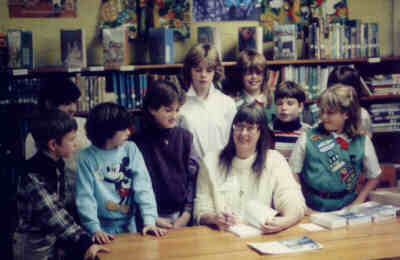 Another unique library is the Friend Memorial Public Library in Brooklin, Maine, a center of boat building. Those same boat builders constructed shelves that slide back out of the way to create an open space for programs. Many of our small Maine libraries sponsor reading groups as well as inviting authors to speak. I’ve met several times with the mystery readers’ group at the library in Rumford and always have a wonderful time.
Another unique library is the Friend Memorial Public Library in Brooklin, Maine, a center of boat building. Those same boat builders constructed shelves that slide back out of the way to create an open space for programs. Many of our small Maine libraries sponsor reading groups as well as inviting authors to speak. I’ve met several times with the mystery readers’ group at the library in Rumford and always have a wonderful time.

The Friend Memorial Library, Brooklin, Maine
Okay, that’s a start on good thoughts about Maine libraries. What stories do the rest of you have to tell?
Lea Wait: Maine is the kind of state where you don’t tear down or throw out. You re-use. So some of my favorite libraries had former lives. The Wiscasset Library was once headquarters of the 19th century Lincoln and Kennebec Bank; the original vault is still in the basement. The Winslow Public Library had its start as a roller skating rink; the center of the rink is now a wonderful oval children’s department. The Thomaston Library was once an elementary school. And, of course, too many libraries to be counted started their lives as large elegant homes.
Sarah Graves: While thinking about what to say here, I realized that my relationship with libraries large and small, public and private, is one of the longest and strongest relationships in my life. From the tiny three-rooms-above-the-fire-station in Pewaukee, Wisconsin through the wonders of government and university collections and now back to Eastport, Maine’s excellent Peavey Library, I’ve relied upon them for all kinds of things. Information, of course, and entertainment…but also for peace of mind, that sense that here is something worth having and saving for all of us, and I’m not the only one who thinks so. And for humility…because there’s nothing like the sight of the book that was the Big New Thing in 1955 to lend perspective to whatever my little writing-tale-of-woe happens to be that day.
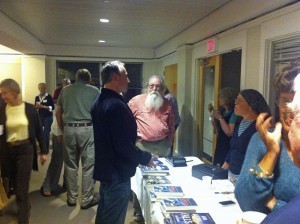
Paul Doiron after a book talk at the Curtis Library in Brunswick
Kaitlyn: I doubt there’s room enough here to mention all the libraries that have done good things for Maine writers over the years. The public libraries in Portland and Bangor are large but writer-friendly. I still have the tee-shirt from a panel Kate Flora and I and some others did there eons ago. It says: “Solve a Mystery . . . Read.” The Maine State Library in Augusta has a collection of books by Maine authors. In addition, the librarians there are always willing to help with research. The library also offers free access to MARVEL, which provides the text of articles online. I use Mantor Library at the University of Maine at Farmington regularly for research and keep the inter-library loan staff very busy every time I start a new book. With a courtesy card from that branch, I can request books online from anywhere in the University of Maine system (URSUS) and from other libraries connected to it through MAINECAT. The little libraries are great for research, too, especially in local history and genealogy. They can all order inter-library loans. And many of them function as mini-museums, too, with permanent exhibits of items of local historical interest. Even with budget cuts, most rural Maine libraries still manage to provide all kinds of extras to patrons, everything from computer access to photocopying services. And, of course, books.
Gerry Boyle: What would we do without libraries and librarians, the best “handsellers” in the book business? From Biddeford to Portland to Bangor and beyond, I’ve always enjoyed my visits with library patrons. But I must say my favorite is the Albert Church Brown Memorial Library in China Village. Where I live. Where I was, for many years, president of the board of trustees. Now I’m the guy who lovingly mows the library lawn.
I’ve spoken a couple of times at “my” library but I must say it always seems a bit odd. The patrons mostly know me as a neighbor and friend, somebody to chat with at the post office or the transfer station. So when I go and read from one of my books or sign books there it seems kind of pretentious. When I ask for questions, I expect somebody to say, “Gerry. Good to see you here. When are you going to return my wrench?”
That said, our village library, like others, is a mystery lovers haven. A room full of titles, new and old. I can take out a yellowed John Creasey or the newest release. I can ask Mary Grow, the librarian, what she recommends. She’ll tell me what she thinks, the feedback she’s getting, whether she thinks I’ll like it. When I finish a book, I not only return it, I give my unofficial review.
So when a reader says, “Sorry, I don’t buy your books. I get them at the library,” I don’t complain. These are places where the reading is the thing.
Barb Ross: I’ve been to the Friend Memorial, too. On a panel with Katherine Hall Page, Valerie Wolzien and Wiscasset’s Janet Morgan. What a gem! My library gigs, in Maine and throughout New England have been great. Many librarians could give many booksellers lessons in how to manage an event, in my opinion. How’s that for a grand generalization and a controversial statement to boot?
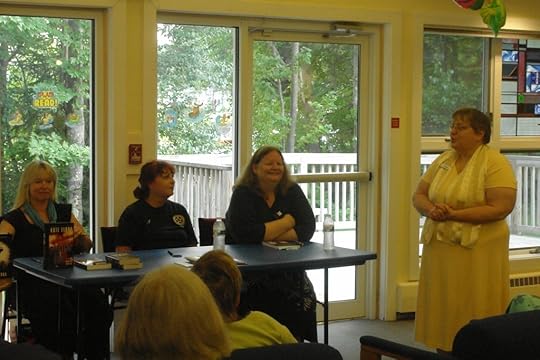
Here I am at my first library panel in Wells, Maine with Kate Flora, Jayne Hitchcock and Anne Mosey introducing. Can it really be just eleven months ago? I was nervous and very glad to be in the capable hands of Kate Flora.
Kate Flora: Among my memorable experiences at Maine libraries I have to put a very special night at the McArthur Public Library in Biddeford, with Lea Wait and Ruth McCarty. It wasn’t just that the librarians were so kind and friendly, nor that the crowd that night (and it WAS a crowd–our Maine librarians are good at giving us an audience) was so receptive and asked such intriguing questions. It was the refreshments. I’ve posted this photograph on a number of occasions, because it is such a prize, and it has inspired many another library to do the same.
[image error]
Biddeford Library serves finger cookies for a mystery event
[image error]
Camden Library serves finger cookies. Who can resist this very unusual spin of the term, “finger cookies?”
And no one can say our librarians lack ingenuity and creativity. See the cake the Freeport Community Library provided for a crime story/Poe’s Birthday event. And the Camden Public Library did themselves proud with an entire buffet of mystery treats for a panel that Gerry, Jim and I did there.
[image error]
Freeport Library hosts “Poe’s Birthday” with a special cake
[image error]
Camden’s “Cake to Die For”
My “home” library, of course, is the Vose Library, in Union. It’s where I had my first job, helping the librarian after school. And where they’ve invited me to participate a few times in their annual “Soup and Suspense mystery event.
And of course, while the list could go on and on, since visiting Maine libraries is one of my favorite “pastimes,” I cannot end this (though I know this group will be back to the subject of libraries many times) without mentioning Carol Briggs, a serious author supporter at the Curtis Library in Brunswick, and Charlene Clemons, at the Ellsworth, Maine library, who has declared herself my biggest fan. I wonder if people realize how much such a declaration means?
Jim Hayman: For those of you who haven’t heard the brand new 3,500 square foot library opened on Swans Island on July 8th, just a couple of weeks ago. The old island library, which had been listed on the National Register of Historic Places, burned to the ground in 2008 after being struck by lightning. Here’s a shot of the fire.

Swans Island library burns to the ground.
Maine Writers and Publishers Alliance (I’m on the board) is planning to contribute some of the books entered in last month’s Maine Literary Awards to the new library. I’ve added copies of my own to the mix. Anyone who has new books they’re willing to contribute might also consider sending them along.
Julia Spencer-Fleming: My local library, the Salmon Falls Library, is typical of what you find in many of Maine’s rural areas. It’s reused from an older building (in this case, the first kindergarten in the Buxton/Hollis area, donated to the town by its most famous author, Kate Douglas Wiggins.) It’s open about 20 hours a week and has one paid employee, the director. (She also acts as children’s librarian, acquisitions director, programming manager, etc., etc.) The wonderful thing is, there are three other libraries serving the two towns; West Buxton, Hollis Center and Berry Memorial. Between them, area residents have the same choices and hours that library-goers in the city enjoy.
I support my library as a volunteer and as a donor. I also recently became the President of the Friends, by virtue of being the last one to arrive at the annual meeting. Finally, I’m the Salmon Falls Library’s Writer-in-Residence, which means I get the key and can work there when the place isn’t open to the public. Since it’s the only place around with air conditioning, I’m there quite a lot in July and August!
Kaitlyn: One last comment from me. Support your local library. Volunteer. Check out old favorites from the stacks, since whether or not they are culled depends upon how recently they were read. And donate books (in good condition) that you’ve read and don’t need to keep. Even if they aren’t added to the library collection, they can help raise funds at library book sales.
The Curtis Memorial Library Mystery Series
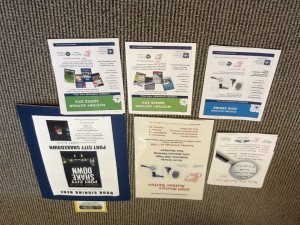 In 2007 the Friends of the Curtis Memorial Library in Brunswick, Maine and the New England Chapter of Sisters in Crime (www.sincne.org) formed a partnership to provide a mystery writers’ series for the library’s readers. In 2010, the Friends were contacted by Kate Flora, a familiar speaker at the Curtis Memorial Library, and coordinator of the crime writing blog, Maine Crime Writers, (mainecrimewriters.com) to ask if her group could join the mystery authors partnership. As a result of these two collaborations, a very successful relationship was formed, resulting in our annual mystery series at the library.
In 2007 the Friends of the Curtis Memorial Library in Brunswick, Maine and the New England Chapter of Sisters in Crime (www.sincne.org) formed a partnership to provide a mystery writers’ series for the library’s readers. In 2010, the Friends were contacted by Kate Flora, a familiar speaker at the Curtis Memorial Library, and coordinator of the crime writing blog, Maine Crime Writers, (mainecrimewriters.com) to ask if her group could join the mystery authors partnership. As a result of these two collaborations, a very successful relationship was formed, resulting in our annual mystery series at the library.
Each year in February, the Friends contact Leslie Wheeler, the Speaker’s Bureau coordinator for sisters in Crime and Kate Flora, of the Maine Crime Writers’ group, with available dates. Leslie and Kate then find mystery authors new to the Curtis audience, or favorite authors with new books. Curtis Memorial then provides the setting and mystery readers flock to the library.
The mystery author series takes place in September and October in the Morrell Meeting Room at the library. Gulf of Maine provides the books for purchase and author signing. Bohemian Coffee House provides incredible refreshments, including, in the words of organizer Carol Briggs, “cookies to die for.”
Authors have no set formula concerning the subjects of their talks. Talks could include how to plot a story or how writers go about building their characters. Talks could include the solitary life of the writer, something about their personal lives, such as writing in pajamas, or how they do their research. The audience may ask questions during the talk or wait until the end to ask their questions, but one of the highlights will always been the time after the formal talk when readers get to chat informally with favorite authors, or meet new writers, and get their books signed.
The speakers may be familiar authors like Tess Gerritsen or Julia Spencer-Fleming, or Paul Doiron, or  newcomers in the mystery field like Barbara Ross or Vicki Doudera. With Leslie and Kate both helping to organize the events, we get to meet new Maine authors as well as writers from all over New England.
newcomers in the mystery field like Barbara Ross or Vicki Doudera. With Leslie and Kate both helping to organize the events, we get to meet new Maine authors as well as writers from all over New England.
Here’s a quote from Leslie Wheeler:
The series at the Curtis is a great opportunity for NE mystery writers. As I was looking back over old e-mails, found several from authors, who having done an event at the Curtis one year had such a good experience that they were eager to come back again. I was so glad to have the opportunity to speak at the library myself in 2010, and meet you in person. Everything was handled so well—a large, literate audience who asked good questions, the event filmed by a local TV station, and a generous fee—what more could an author want? These are all things I mention when I post the opportunity on my Speakers Bureau distribution list.
Actually, Leslie was mistaken about the event being filmed by a local TV station. The evenings are filmed by Curtis Memorial librarian Paul Dostie. The video is made available to the local TV station. A copy is added to the library collection. And a copy is given to the presenting author.
 Since we began this series, it has become so well known in the writing community that Leslie and Kate are now approached by authors wanting to be a part of the program. It is rewarding to know that the Curtis Library, New England Sisters in Crime, and Maine Crime Writers are giving mystery authors such an appealing opportunity to spend an evening with their readers.
Since we began this series, it has become so well known in the writing community that Leslie and Kate are now approached by authors wanting to be a part of the program. It is rewarding to know that the Curtis Library, New England Sisters in Crime, and Maine Crime Writers are giving mystery authors such an appealing opportunity to spend an evening with their readers.
Kate Flora: And, we hope, an opportunity for readers to meet the diverse range of crime writers we have here in Maine and elsewhere in New England. I asked Carol Briggs, who organizes this, why the Curtis Library decided to do a mystery series?
Why mysteries? I think the fact that my area in the library is the mysteries had a lot to do with the  selection but I also think we have a large group of mystery readers who have very varied tastes. From a Sarah Graves to Steig Larssen to Robert Parker and even a Kate Flora. They know what they like and will request purchasing THEIR authors books. Of course the fact that I love mysteries is a plus all round.
selection but I also think we have a large group of mystery readers who have very varied tastes. From a Sarah Graves to Steig Larssen to Robert Parker and even a Kate Flora. They know what they like and will request purchasing THEIR authors books. Of course the fact that I love mysteries is a plus all round.
The readers really love the programs. What’s not to love, they get to hear an author talk about books and writing, ask them questions, meet them afterwards, and also get an autographed copy of one of the authors books. It’s a win win for the audience and the writer.
April 15, 2014
Library Talks
It’s going to be one of those days for me! I couldn’t find the Login link and had to root around the site to finally find it, so I apologize for this being late as a post.
With it being Library Week, is there anything special you are doing? I don’t have anything up my sleeve yet, but do have a bunch of books I plan on dropping off at my local library as a donation, including my latest, True Crime Online (http://truecrime-online.com). I make sure I sign it – they usually place signed copies of books either up front as people walk in the door or in a prominent place.
Do you donate your books (if you are published) and sign them?
Next month I will be speaking at the Hollis, New Hampshire library about the safety of online shopping. That was their request. They have mainly seniors who come to their talks and most are online and are wary about shopping on the Internet. I will make sure to allay their fears with some simple tips, which I will share with you:
1. Try to use on credit card or a prepaid card for all your shopping online so that if the transaction does go wrong, you only have one company to deal with.
2. Make sure the shopping web site is someplace you are familiar with or that a friend recommended. If you find the item you want is on a site you are not familiar with, check to make sure they have a secure checkout procedure. This means that when you put your item in a cart (or similar method) that the web URL changes from http:// to https:// – the “s” means it’s secure. If that doesn’t happen, then get out of there and try to find a reputable site that sells the item you want.
3. Check shipping rates – sometimes you find the item you want at a great price, then find the shipping is a bit outrageous. Many sites offer free shipping over a certain dollar amount and around the Christmas holidays, free shipping is rampant for pretty much anything you want to buy.
4. Check shipping delivery times – sometimes you’ll pay for shipping and it’s sent the slowest way possible. If they don’t post shipping rates and delivery times readily, it’s time to pick another web site to shop from.
5. Take advantage of ordering something online, then having it shipped to a store location near you. You save on shipping costs, and if you are in Maine and can get to New Hampshire, taxes (shhhhhh, don’t tell anyone!).
Any advice out there you can add about your online shopping experiences?
April 14, 2014
A Book Chat on Crime Fiction from a Readers’ Advisory Librarian
When Vicki Doudera called to ask me to contribute to the blog this week, I was in the middle of cataloging unpublished papers about archaeological digs. So my first reaction, through the tech services haze, was: “…Me, write? I…blog? What’s a blog?”
Once I recovered enough to switch on the non-cataloger part of my brain, I was flattered! Then I panicked, thinking, “Oh dear, crime fiction? Do I read crime fiction? More importantly, do I have anything to say about it?”
Lucky for me, I did manage to think of some things to say! Because the more I thought, the more I realized how much I love Crime Fiction. I also relish any opportunity to geek out about the things I love, particularly when it comes to books. Put those two things together, I figured, and hey presto! A blog post for Maine Crime Writers.
My name is Marie Stickney, and I’m a librarian at the Camden Public Library in Camden, Maine. I’ve worked here for nearly a decade, which is pretty much all of my grown-up working life. A big part of my job is Readers’ Advisory–that delicate and intricate art of connecting the right reader with the right book at the right time. While I have many different and rewarding tasks at the library, RA is hands-down my favorite part of being a librarian. So naturally, when I think about Crime Fiction, I think about it from the point of view of a Readers’ Advisor.
Crime Fiction is a gritty and dark region somewhere in the murky wilds of Mystery. Thriller and Suspense border it on either side, and the borders are crossed quite often. Horror can be seen off in the distance. Most of the time the terms Crime and Mystery are used interchangeably, but I think there’s a difference. Perhaps a subtle one, sometimes, but still a difference.
When I think Crime, I think dark. I think atmospheric. I think grisly murder. I think mounting suspense, a few violent scenes, and maybe an antihero. Those all come to me before I think sleuth, puzzle, investigation, or clues, which are all hallmarks of Mysteries. If you take a look at the Crime Writers’ Association list The Top 100 Crime Novels of All Time, you’ll see how broad the definition of a Crime novel is. Daphne Du Maurier’s Rebecca is on there, as is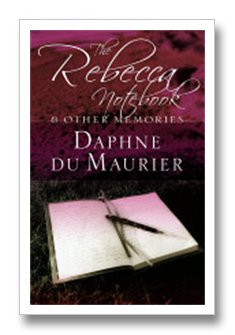
Umberto Eco’s The Name of the Rose. There’s Noir, there’s Cozy, there’s Classic, there’s Amateur Sleuth, there’s Secret Agent. All that and more moving through the ever-changing lands of Crime. Do check it out—the full list is on Wikipedia.
From an appeal point of view, the most important distinction between Crime and Mystery is that, in Crime, you don’t necessarily have to have a solution. Sometimes you don’t even have a proper investigation into crime. In a Mystery, there’s a formula. The Mystery Formula is: Crime + Detective + Investigation with Clear Clues = Solution. In the end the bad guys go to jail and the good guys are triumphant. In Crime, you don’t always have that kind of ending. What’s important is the criminal element, not necessarily the investigation and its outcome. That’s why Crime’s borders with other genres are so fluid—the hunt for a killer is a great set-up for stories of suspense. Whether the killer is caught or not is a different story. Hey, maybe the killer is our narrator. In Crime, unlike straight Mystery, that can happen.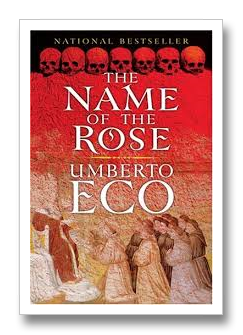
Me, I love Thrillers. Those, though, have a tendency to tip over the line into Horror fairly often. Horror isn’t always what I’m after. I don’t want to be terrified or disturbed so much as I want an adrenaline hit and a nice big payoff. I like the intellectual appeal of a well-crafted mystery. As my reading has grown and evolved, and as I’ve worked with other readers at the library, I’ve found that what I enjoy most is a nice dose of the Mystery element in my Thrillers. I’m not so much for solving a puzzle as I am for a nice big juicy twist right at the end. Or a big thrilling reveal. Each of these elements prefaced, of course, by a nonstop cavalcade of ever-intensifying twists and turns.
Crime Fiction, then, often suits me perfectly. Crime has that perfect heady blend of mystery, suspense, and atmosphere. It’s not quite a puzzle, it’s not quite an adventure, it’s not quite dark fiction, it doesn’t have to play by a straight-up mystery’s rules. It’s Crime, man, and it’s fantastic.
I’d be remiss in my duties as a Readers’ Advisory librarian if I let you get away without suggesting a few titles. I poked around in my reading journals and past reviews and came up with a couple of novels which reflect the kind of Crime I’ve been talking about:
**Sharp Objects by Gillian Flynn. Flynn got a lot of attention a couple of years ago with her latest, Gone Girl, but her first novel is my favorite. It’s disturbing and creepy and utterly compelling. Camille is a journalist who returns to her hometown to cover the investigation into the murder of two young girls. The reveal is unexpected and horrifying. If you like a healthy dose of Horror in your Crime, do give Flynn a try.
**The Talented Mr. Ripley by Patricia Highsmith. A classic of Psychological Suspense from a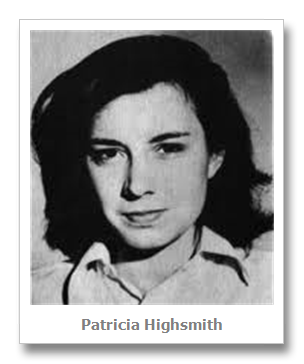
writer who always liked to be dark and disturbing, this is a Crime novel where the criminal is our protagonist. Tom Ripley is striving to make a name for himself in 1950’s Manhattan when he is befriended by a wealthy young man named Dickie Greenleaf. Friendship soon turns to obsession, and shortly thereafter obsession turns criminal.
** Help for the Haunted by John Searles. This recent novel is an example of a Crime novel which has a wonderful blend of Mystery and Dark Fiction. The story centers on Sylvie, whose parents (who make a living by providing pseudo-exorcism services to “haunted” people) have been murdered. The storyline moves back and forth in time as Sylvie struggles to uncover what happened to her parents, and who the true murderer is.
** Night Film by Marisha Pessl. Pessl’s work is truly remarkable for how multi-layered it is. She creates an entire world in this novel, and the reader is completely drawn in. The story centers on disgraced investigative journalist Scott McGrath and his probing into the apparent suicide of one Ashley Cordova—daughter of the legendary horror film director Stanislas Cordova. Secrets are uncovered and mysteries are unraveled as new ones appear in this eerie and hypnotic book.
Thanks for the opportunity to book chat about Crime Fiction! It really is an honor to blog along with some of the best in Maine. Do come by the Camden Public Library this week if you’re in town to help us celebrate National Library Week. Maybe check out some Crime novels while you’re here! I’ll be here with suggestions for you.
Lea Wait's Blog
- Lea Wait's profile
- 509 followers


